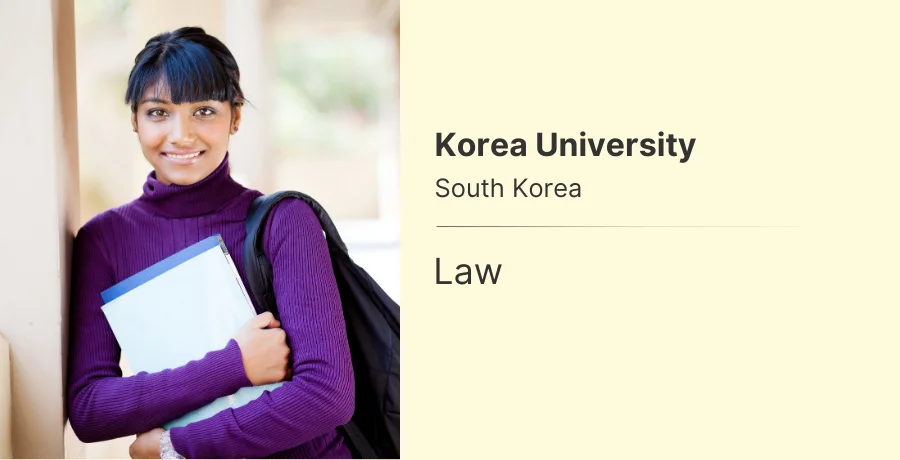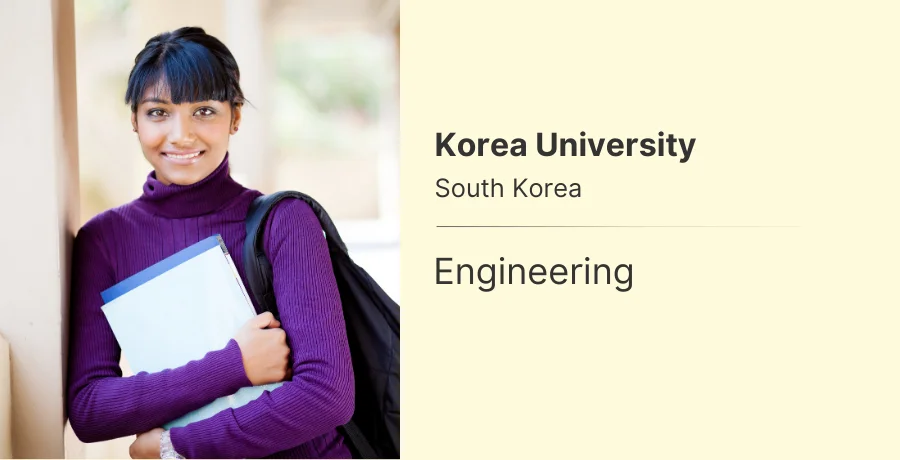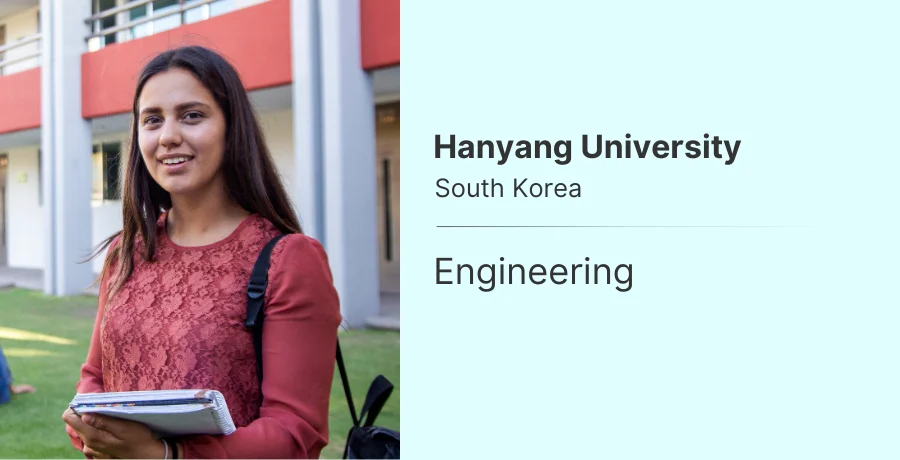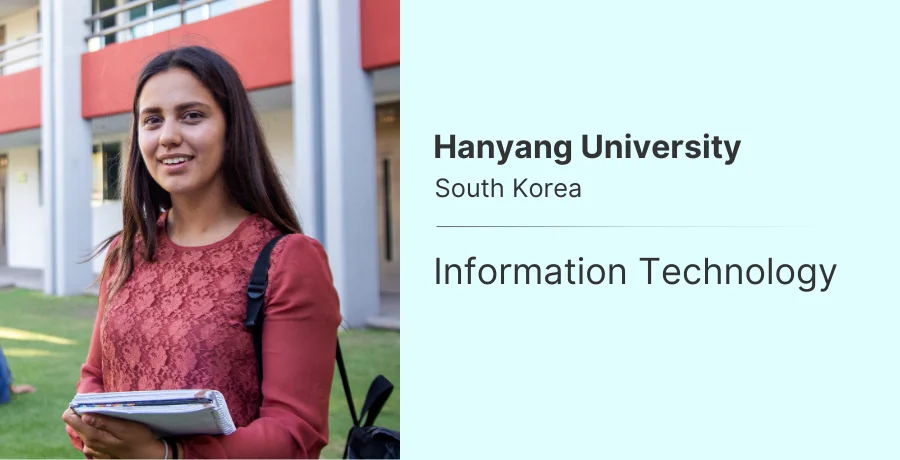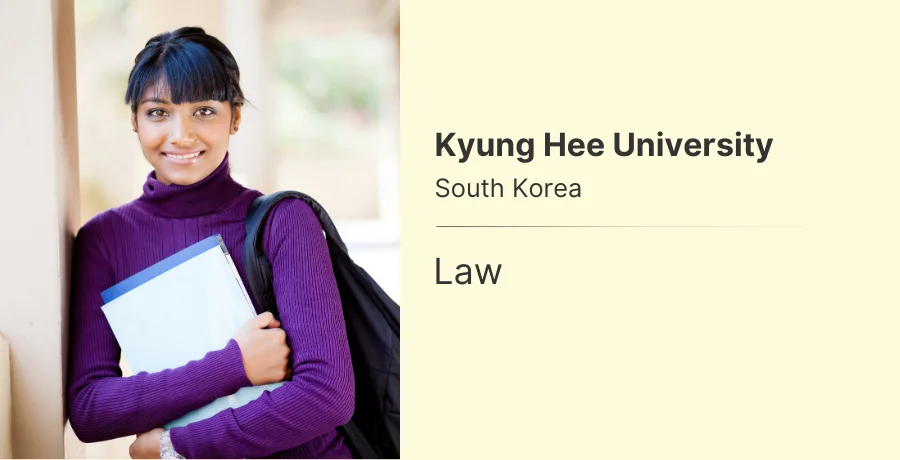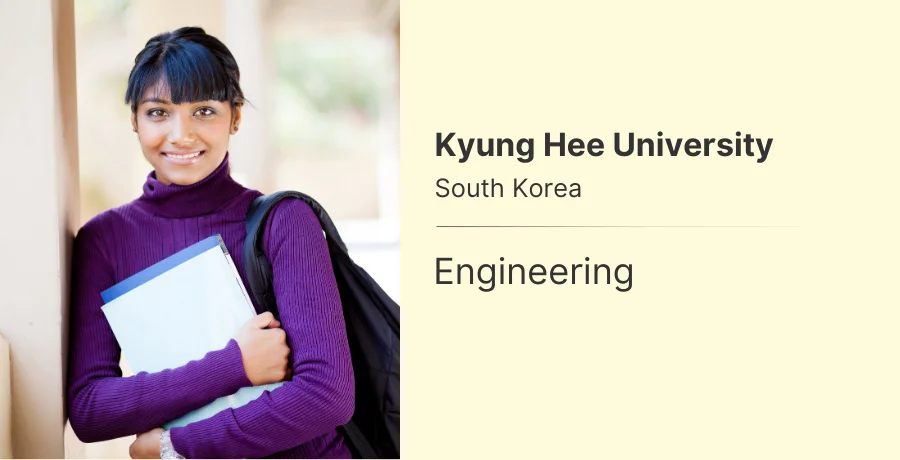Korea Advanced Institute of Science and Technology (KAIST) Highlights
Established in 1971, KAIST is South Korea's leading university for research in science, engineering, and technology. Known for its innovative approach to education, the university consistently ranks among the top universities globally. Located in Daejeon, KAIST offers a vibrant research-driven environment with state-of-the-art facilities. It is recognized for its role in pioneering advancements in areas such as AI, robotics, and biotechnology, making it a hub for future leaders in technology and innovation.
KAIST Rankings
- Year of Establishment: 1971
- Global Ranking: Top 50 worldwide (QS World University Rankings)
- Program Strengths: Engineering, Natural Sciences, AI, Robotics, Biotechnology
- Infrastructure: Advanced labs, cutting-edge research centers, and a high-tech campus
- Accreditation: Accredited by the Korean Ministry of Education and international bodies
KAIST Location and Campus
KAIST is located in the city of Daejeon, which is known as South Korea's Silicon Valley due to its rich concentration of research institutions and technology companies. The university's main campus is equipped with modern facilities, including high-tech research labs, innovation hubs, and student support centers. Daejeon offers a perfect blend of educational resources and professional opportunities, fostering an environment of growth and exploration for students.
KAIST Admissions
KAIST welcomes students from around the globe, with competitive admission criteria based on academic performance, standardized tests, and demonstrated interest in science and technology.
UG Admissions:
- Completion of high school or equivalent
- SAT, ACT, or Korean CSAT scores
- English proficiency (TOEFL/IELTS for international students)
- Personal statement and recommendation letters
- Optional interviews for select programs
PG Admissions:
- Bachelor’s degree in a relevant field
- Minimum GPA and strong research background
- TOEFL/IELTS for non-native English speakers
- Research proposal and letters of recommendation
- Interview with faculty members may be required
Ph.D. Admissions:
- Master’s degree in a related field
- Proven academic and research excellence
- TOEFL/IELTS scores
- Research proposal and recommendation letters
- Interviews with potential supervisors
KAIST Eligibility Criteria
KAIST has rigorous academic standards for entry into its programs, with specific criteria for undergraduate, postgraduate, and Ph.D. applicants.
Undergraduate Program Eligibility:
- High school diploma or equivalent
- Standardized test scores (SAT/ACT or CSAT)
- Proficiency in English (TOEFL/IELTS)
- Strong foundation in math and science
Postgraduate Program Eligibility:
- Bachelor’s degree in a related field
- Strong academic record with relevant research experience
- English proficiency
- Recommendation letters
Cost of Tuition Fees at KAIST
KAIST offers affordable tuition fees, especially considering its world-class ranking and research output. The university also offers a variety of scholarships to reduce the financial burden on students.
| Program Level | Tuition Fees (approx.) |
|---|---|
| Undergraduate Programs | USD $6,000 - $7,500 per year |
| Postgraduate Programs | USD $7,000 - $8,500 per year |
| Ph.D. Programs | USD $8,000 - $9,000 per year |
KAIST Cost of Living
The cost of living in Daejeon is relatively affordable compared to other major cities like Seoul, making it an attractive option for international students.
| Expense | Cost (approx.) |
|---|---|
| On-campus Accommodation | USD $200 - $400 per month |
| Food & Daily Expenses | USD $300 - $500 per month |
| Transportation | USD $50 - $100 per month |
KAIST Accommodation
KAIST offers various on-campus accommodation options, providing students with comfortable and affordable housing. The dormitories are equipped with modern amenities, making it convenient for students to focus on their studies.
On-campus Accommodation:
- Single and shared rooms available in dormitories
- Modern amenities including Wi-Fi, laundry services, and communal kitchens
- Affordable monthly rent ranging from USD $200 - $400
KAIST Intakes
KAIST offers two main intakes each year, in March and September, to accommodate both local and international students. The application process begins several months in advance, with deadlines typically falling in October for the March intake and May for the September intake.
KAIST Acceptance Rate
The acceptance rate at KAIST is highly competitive, with approximately 10-15% of applicants being admitted. The university seeks students with exceptional academic backgrounds and a demonstrated passion for research and innovation in science and technology.
KAIST Scholarships
KAIST offers a variety of scholarships for both local and international students, aimed at recognizing academic excellence and reducing the financial burden on students.
| Scholarship | Maximum Amount Offered |
|---|---|
| KAIST International Student Scholarship | Full tuition waiver + living stipend |
| Global IT Talent Scholarship | Full tuition + research funding |
| Graduate Research Assistantship | Full tuition + research funding |
| Korean Government Scholarship | Full tuition + living expenses |
KAIST Placements
KAIST has an impressive placement record, with graduates going on to work for leading companies like Samsung, LG, Hyundai, and other global tech giants. The university’s Career Development Center offers support in internships, job placement, and career counseling.
| Job Role | Average Starting Salary |
|---|---|
| Software Engineer | USD $60,000 - $70,000 per year |
| Research Scientist | USD $55,000 - $65,000 per year |
| Data Scientist | USD $65,000 - $75,000 per year |
| AI Engineer | USD $70,000 - $80,000 per year |
| Product Manager | USD $65,000 - $75,000 per year |
KAIST FAQs
Q: What is KAIST known for?
A: KAIST is renowned for its world-class research and innovative programs in engineering, technology, and natural sciences, consistently ranking among the top universities globally.
Q: Does KAIST offer scholarships for international students?
A: Yes, KAIST offers several scholarships, including the KAIST International Student Scholarship, which covers full tuition and provides a stipend for living expenses.
Q: What is the medium of instruction at KAIST?
A: While many undergraduate programs are taught in Korean, most graduate programs and several research-based courses are offered in English.
Q: How competitive is admission to KAIST?
A: Admission to KAIST is highly competitive, with an acceptance rate of around 10-15%, particularly for international applicants.
Q: Are internships available for KAIST students?
A: Yes, KAIST offers internship programs through partnerships with major tech companies in South Korea and abroad, as well as research internships in its advanced labs.



